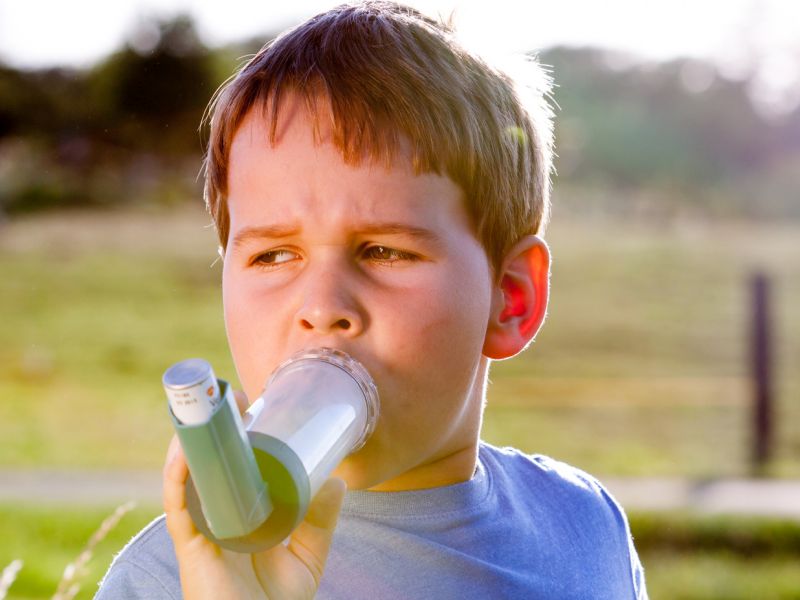SUNDAY, Aug. 4, 2019 (HealthDay News) — As kids head back to school, it’s important for parents to keep potential asthma and allergy challenges in mind.
“In the fall, allergists see an increase in kids’ visits for allergies and asthma because of a combination of factors,” said Dr. Todd Mahr, president of the American College of Allergy, Asthma and Immunology (ACAAI). “And hospitals see what’s known as the ‘September Spike’ because kids who have been off asthma controller medications for the summer start experiencing flare-ups in the fall.”
As a new school year begins, kids are exposed to allergens in the classroom, on playing fields and in the cafeteria that many probably haven’t run into all summer, he said in an ACAAI news release. On top of that, it’s ragweed season — a terrible time of year for kids who are allergic.
Mahr suggests parents meet with their child’s allergist this month to create an allergy action plan.
Parents should also try to identify potential asthma and allergy triggers that their children may encounter at school. These may include chemical compounds from new carpeting, pollen drifting into classrooms through open windows, or mold in bathrooms.
Parents should discuss potential triggers with teachers and school administrators to help ease symptoms.
Children with asthma or allergies should still be able to play any sport as long as they follow their allergist’s advice, according to the ACAAI.
While physical activity can cause airways to constrict, if your child’s asthma is under control, he or she should be able to participate. Make sure coaches and physical education teachers know what to do if a problem arises.
If your child has a food allergy, make sure the school is fully informed. Work with your allergist and school staff to develop an action plan that lists foods your child is allergic to, treatment procedures and emergency contact information, the ACAAI advised.
Be sure your child understands what to do if he or she suffers an allergy or asthma emergency at school. They should carry and know how to use asthma and anaphylaxis medications, and school staff also should know how to administer them.
More information
The American Lung Association has more advice for parents of children with asthma.
Copyright © 2026 HealthDay. All rights reserved.

